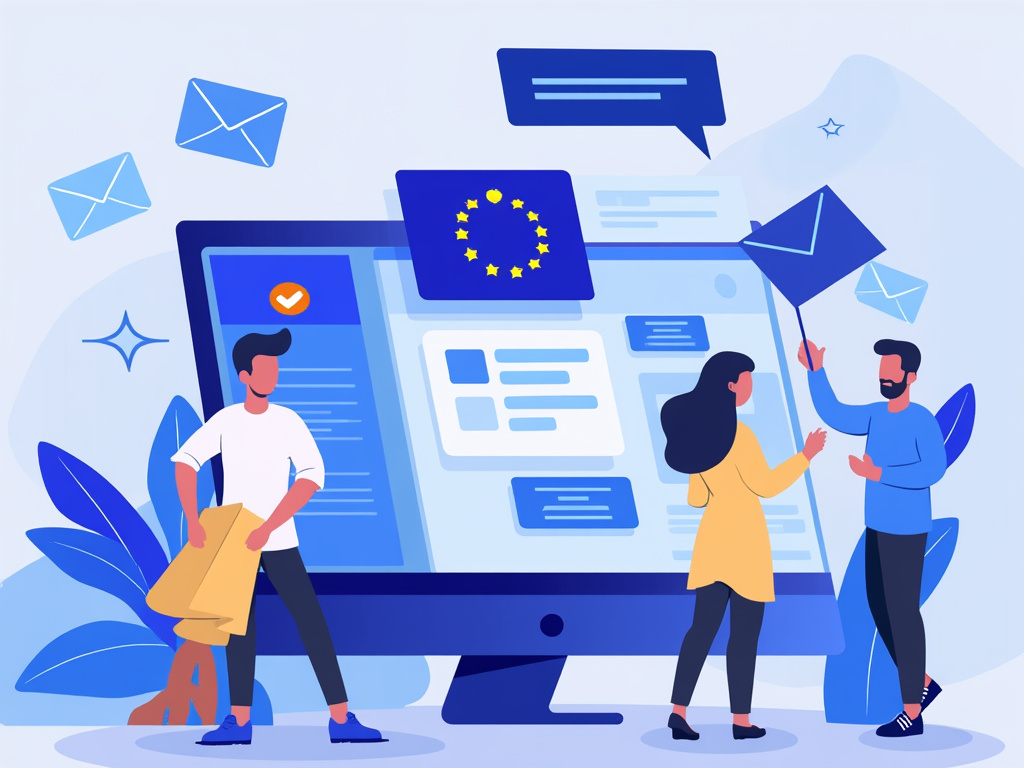GDPR Compliance in Email Marketing: Essential Strategies for Success

Managing an e-store in today’s digital landscape requires a keen understanding of the various regulations governing online practices. Among these, the General Data Protection Regulation (GDPR) stands out as a game-changer, especially when it comes to email marketing. Mastering GDPR compliance isn’t just about ticking boxes; it’s about cultivating trust, refining your strategy, and ensuring that your marketing efforts resonate with your audience while staying within the legal boundaries.
Understanding GDPR: The Basics
The GDPR was enacted to protect the personal data of individuals within the European Union and the European Economic Area. It emphasizes the importance of transparency, consent, and data protection. For e-store owners, this means redefining the way you approach email marketing. It’s imperative to understand how GDPR affects your data collection methods, the way you obtain consent, and how you manage customer preferences.
When you collect personal data, you must ensure that your customers know why you’re collecting it and how it will be used. This awareness builds trust and fosters a positive relationship with your audience.
Revisiting Your Consent Mechanism
Before GDPR, many marketers used pre-checked boxes to gain consent for email marketing. However, GDPR requires that consent must be freely given, specific, informed, and unambiguous. Here’s how you can overhaul your consent mechanism:
- Clear Opt-In Policies: Use clear language to explain what customers are signing up for. Avoid jargon, and make it easy for them to understand what you’re offering.
- Double Opt-In: This strategy not only confirms that the person wishes to receive your emails, but it also ensures that you genuinely have their consent.
- Granular Consent: Provide options for users to choose the types of emails they want to receive, whether it’s newsletters, promotions, or updates. This allows customers to have control over their inbox.
Data Privacy and Retention
GDPR mandates that personal data must be stored securely and used only for the purposes for which it was collected. As an e-store owner, this means you need to reassess your data handling processes:
- Data Minimization: Only collect data that is necessary for your marketing purposes. This ensures that you’re not overwhelmed with excess data that can complicate compliance.
- Secure Storage: Implement measures to ensure that personal data is stored securely—whether through encryption, regular backups, or restricted access.
- Retention Policies: Establish a clear policy on how long you will hold customer data. Regularly audit your database to remove data that is no longer needed.
Building Trust with Transparency
Transparency is a core principle of GDPR. Customers have the right to know how their data is being used. As a marketer, you should proactively share your privacy policies:
- Accessible Privacy Policy: Ensure your privacy policy is easy to find and understand. Use straightforward language to explain how data will be collected, used, and protected.
- Regular Updates: If your data practices change, inform your subscribers promptly. Keeping your customers in the loop will reinforce their trust in your store.
- Communicate Changes: Should any data breaches occur, be transparent with your clients about what happened and how it affects their data.
Leverage Marketing Automation Tools
Incorporating tools like Incomaker can significantly ease the GDPR compliance burden on your e-store. Marketing automation provides a streamlining solution for managing consent, sending personalized emails, and tracking user engagement. Here’s how it can help:
- Efficient Consent Management: Incomaker allows you to automate your consent process, ensuring that records of customer preferences are maintained without manual intervention.
- Segmented Campaigns: Use the platform to segment your audience based on their preferences, allowing for targeted and relevant email marketing campaigns.
- Analytics Insights: Gain insights into customer engagement and optimize your strategies based on real-time feedback.
Staying Updated
Lastly, it’s crucial to stay informed about any changes in GDPR regulations or best practices. The digital landscape is always evolving, and so are the challenges surrounding data privacy.
Keeping abreast of these changes will not only help you stay compliant but also position your e-store as a trustworthy entity among customers. Participate in webinars, subscribe to newsletters dedicated to digital marketing and compliance, or join online forums where industry leaders share insights and advice.
By taking proactive steps to understand, implement, and maintain GDPR compliance in your email marketing strategies, you can foster stronger relationships with your customers and enhance your e-store’s reputation in a crowded marketplace. With commitment and care, you can navigate the complex world of data privacy and come out on the other side with a robust email marketing strategy that both inspires and protects.



